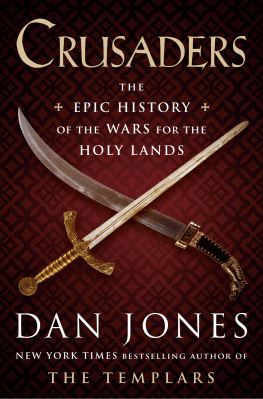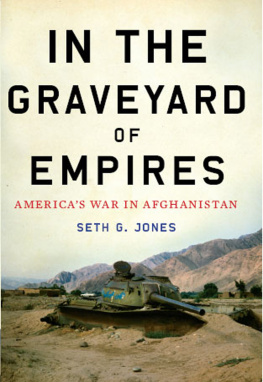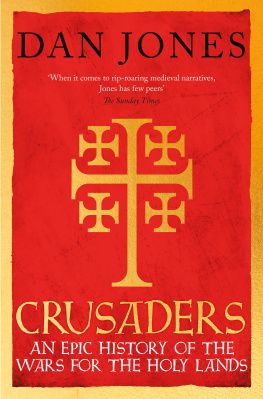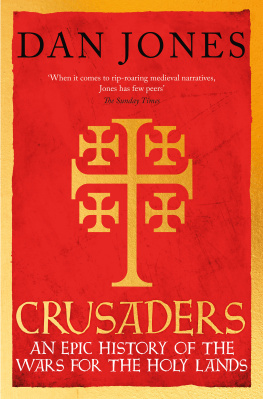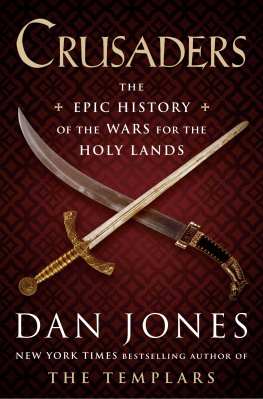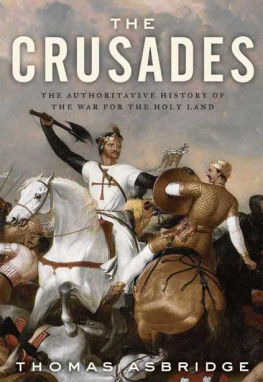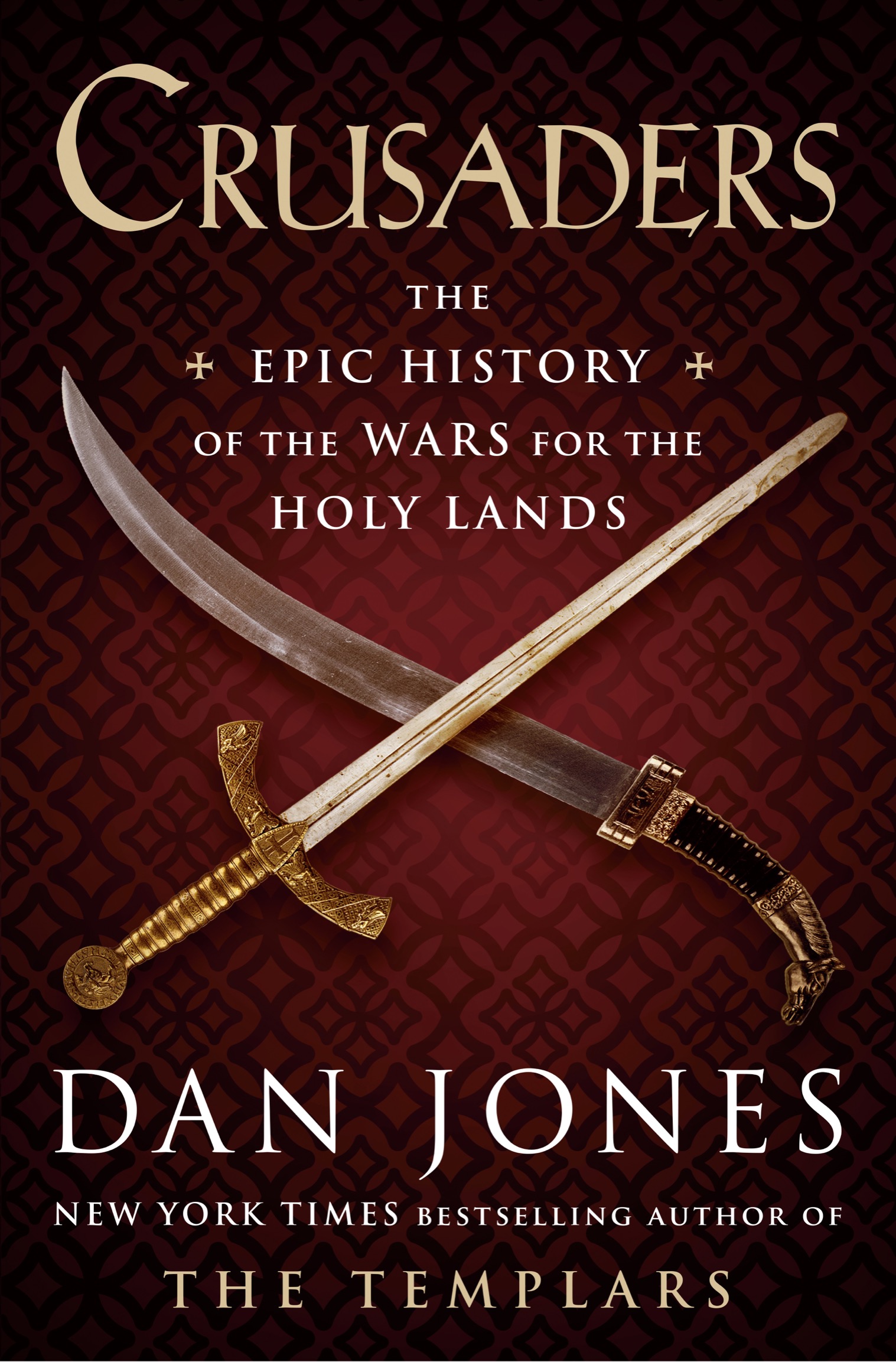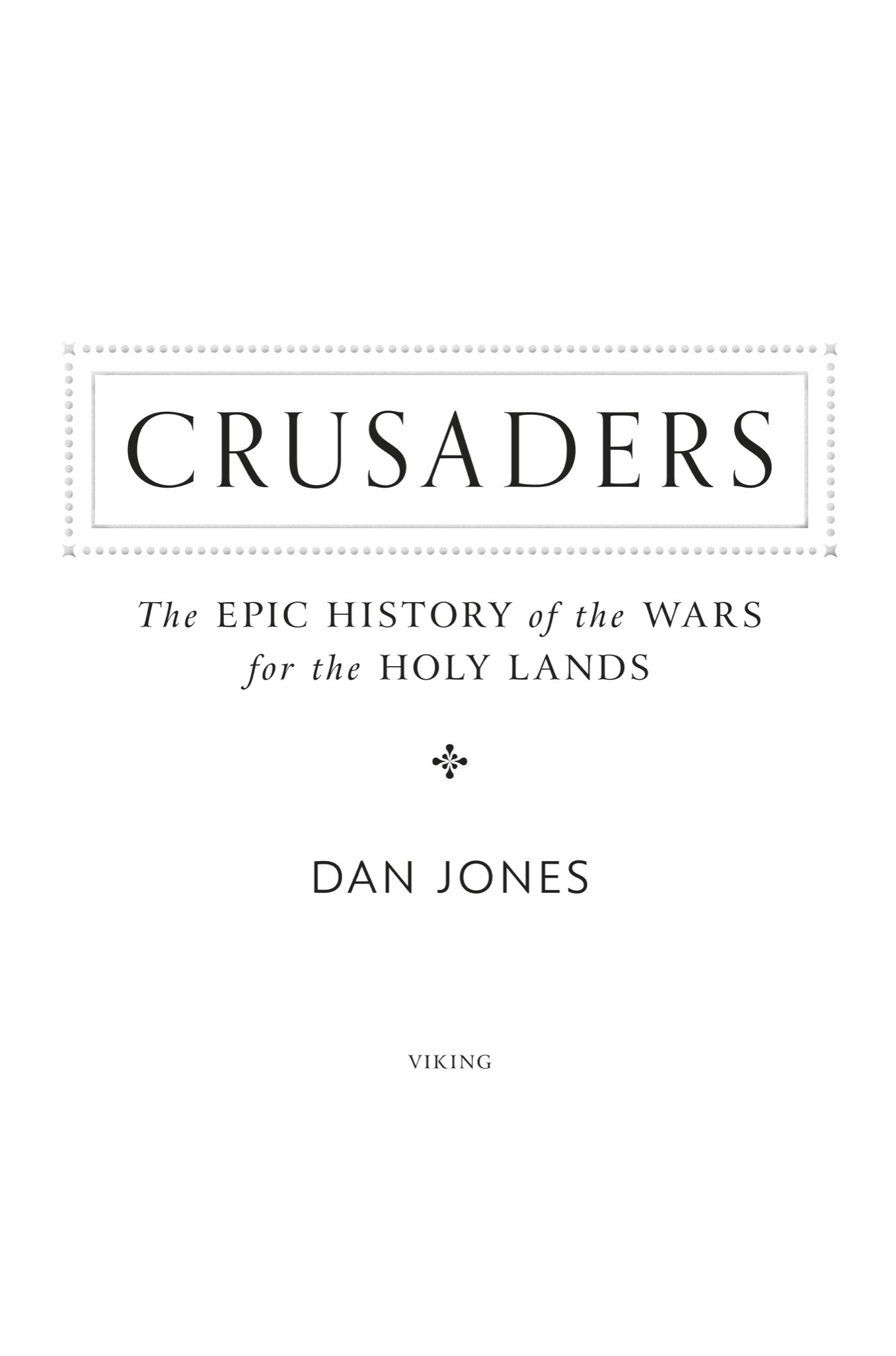ALSO BY DAN JONES
The Templars: The Rise and Spectacular Fall of Gods Holy Warriors
The Plantagenets: The Warrior Kings and Queens Who Made England
The War of the Roses: The Fall of the Plantagenets and the Rise of the Tudors
Magna Carta: The Birth of Liberty
Summer of Blood: Englands First Revolution
VIKING
An imprint of Penguin Random House LLC
penguinrandomhouse.com
First published in hardcover in Great Britain by Head of Zeus, Ltd London, in 2019
Copyright 2019 by Daniel Jones
Penguin supports copyright. Copyright fuels creativity, encourages diverse voices, promotes free speech, and creates a vibrant culture. Thank you for buying an authorized edition of this book and for complying with copyright laws by not reproducing, scanning, or distributing any part of it in any form without permission. You are supporting writers and allowing Penguin to continue to publish books for every reader.
constitutes an extension to this copyright page.
LIBRARY OF CONGRESS CATALOGING-IN-PU BLICATION DATA
Names: Jones, Dan, 1981 author.
Title: Crusaders : an epic history of the wars for the holy lands / Dan Jones.
Identifiers: LCCN 2019017922 (print) | LCCN 2019980552 (ebook) | ISBN 9780525428312 (hardcover) | ISBN 9780698186446 (ebook)
Subjects: LCSH: Crusades.
Classification: LCC D157 .J64 2019 (print) | LCC D157 (ebook) | DDC 909.07dc23
LC record available at https://lccn.loc.gov/2019017922
LC ebook record available at https://lccn.loc.gov/2019980552
Maps by Jamie Whyte
Cover design: theBookDesigners
Cover images: (top sword handle) Sergey Klopotov / Shutterstock; (top sword blade) Peter Lorimer / Shutterstock; (bottom sword) iStock / Getty Images Plus; (backgrounds) Shutterstock
Version_2
For Walter
In those days men cared as much for furs as they did for their immortal souls.
ADAM OF BREMEN (CA.1076)
CONTENTS

LIST OF MAPS
Europe and the Holy Land after the First Crusade, c. 1099
The Crusader States in the Twelfth Century
Progress of the Reconquista
The First Crusaders March from Constantinople, 109799
The Siege of Antioch, 109798
The Siege of Jerusalem, JuneJuly 1099
The Second Crusade, 114749
The Nile Delta During the Fifth Crusade, 121721
Pagan Tribes of the Baltic, c. 1100
Mongols and Mamluks, c. 1260
MAJOR CHARACTERS
PART I |
Roger I of Sicily (d. 1101) | First Norman count of Sicily, brother of Roger Guiscard and father of the first Sicilian king, Roger II. Credited with first suggesting Christian conquest of Jerusalem in a colorful (if muddled) anecdote related by Ibn al-Athir. |
Robert Guiscard (d. 1085) | Norman adventurer, conquered parts of southern Italy and attacked Byzantine territory in the Balkans. Father of the First Crusade leader Bohemond I, Prince of Antioch. |
Ibn al-Athir (11601233) | Iraqi scholar and historian, and author of one of the most famous and detailed Islamic chronicles of the crusades, The Perfect Work of History (Al-Kamil fil Tarikh). |
Ibn Hamdis (d. 1133) | Arab Sicilian poet. Fled Sicily following the Norman conquest and took up a position at the court of the Sevillan taifa king al-Mutamid. Fled Seville following the Almoravid invasion and died in Majorca. |
Al-Mutamid (d. 1095) | Third and last taifa king of Seville. Wrote poetry and embraced sensory pleasures at his court. Defeated by Alfonso VI of Castile and Len, he invited the Almoravids of Morocco into his kingdom, who deposed him. |
Alfonso VI El Bravo (d. 1109) | Christian king of Len, Castile and Galicia; waged war on Muslim taifa kingdoms early in the Reconquista and claimed the title of Emperor of the Two Religions. |
Anna Komnene (10831153) | Author of the great Byzantine history the Alexiad, an exculpatory account of her fathers, Alexios I Komnenoss, reign as emperor. Fierce critic of the Franks and particularly of Bohemond of Taranto. |
Alexios I Komnenos (10481118) | Byzantine emperor whose long reign saw assaults on the empire by Seljuq Turks in Asia Minor and Normans, including Robert Guiscard, in the Balkans. His appeal to Western rulers for military assistance was a major factor in the launch of the First Crusade. |
Pope Urban II (d. 1099) | Born Odo of Lagery, a monk at the Abbey of Cluny and follower of the reforming Pope Gregory VII. Launched the First Crusade at Clermont in November 1095, but died before the fall of Jerusalem was known in the West. |
Adhmar, bishop of Le Puy (d.1098) | One of the first men to take the cross at Clermont. Represented Urban II as papal legate during the First Crusade. |
Raymond IV, Count of Toulouse (d. 1105) | Southern French lord also known as Raymond of Saint-Gilles. Took the cross at Clermont. Prominent leader of the First Crusade and subsequently the first Count of Tripoli. |
Peter the Hermit (d. 1115) | Charismatic preacher from Amiens in northern France. Raised the doomed, early populist contingent of the First Crusade (the Peoples Crusade) and remained a member of the leadership group thereafter. |
Bohemond of Taranto (d. 1111) | Norman leader of the First Crusade who became the first Latin Prince of Antioch and pursued a lifelong feud with the Byzantine emperor Alexios Komnenos. |
Robert, Duke of Normandy (d. 1134) | One of the princely leaders of the First Crusade. Son of the Norman king of England William the Conqueror. His absence on crusade meant he missed his chance to claim his fathers throne. Nicknamed Robert Curthose. |
Tancred of Hauteville (d. 1112) | Bohemond of Tarantos nephew and fellow princely leader of the First Crusade. Regent of the principality of Antioch during Bohemonds absence/imprisonment. Ralph of Caens Gesta Tancredi describes his crusading deeds. |
Godfrey of Bouillon (10601100) | Duke of Lower Lorraine and prominent leader of the First Crusade. Elected first ruler of the Latin kingdom of Jerusalem but refused the title of king. Succeeded by his brother Baldwin. |
Baldwin of Boulogne (d. 1118) | Princely leader of the First Crusade, along with his brother Godfrey. Established the county of Edessa in 1098. Subsequently became first crowned king of Jerusalem, as Baldwin I. |
Stephen, Count of Blois (d. 1102) | Prominent leader of the First Crusade. Wrote vivid letters from Syria to his wife, Adela. Scorned for abandoning the crusade at Antioch; returned to the East on further campaigns before his death. |

